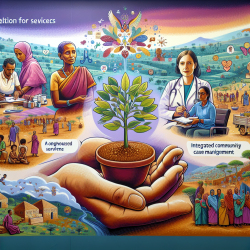The recent study titled The feasibility of establishing parent support groups for children with congenital Zika syndrome and their families: a mixed-methods study provides valuable insights into supporting families of children with Congenital Zika Syndrome (CZS). As Special Education Directors, implementing the outcomes of this research can significantly enhance our skills and the services we provide.
Key Findings and Implementation Strategies
The study, conducted in Colombia, evaluated the feasibility of the 'Juntos' intervention—a 10-week community-based support group for parents of children with CZS. Here are the key findings and how you can implement them:
1. High Acceptability and Demand
The 'Juntos' intervention was highly acceptable and in demand among the target population. Participants appreciated the opportunity to engage with others in similar situations and valued the practical skills and psychological support provided.
- Implementation Tip: Establish parent support groups within your school district. These groups can provide a safe space for parents to share experiences and gain practical skills.
2. Improved Knowledge and Confidence
Participants' knowledge and confidence in caring for their children improved significantly after enrolling in the program. The participatory learning sessions and peer support were crucial components.
- Implementation Tip: Incorporate participatory learning sessions in your parent workshops. Encourage peer support and sharing of personal experiences to foster a collaborative learning environment.
3. Practicality and Organizational Support
The study highlighted the importance of providing logistical support, such as covering transport costs and selecting convenient locations for sessions. Additional organizational and social media support was also deemed necessary.
- Implementation Tip: Ensure that logistical barriers are minimized by providing transportation support and selecting accessible locations for meetings. Utilize social media to keep parents engaged and informed.
4. Integration with Community Health Workers
Training community health workers to support the intervention was identified as a potential strategy for integrating the program into existing health systems.
- Implementation Tip: Collaborate with local health agencies to train community health workers. This can help in the seamless integration of support groups into the broader health system.
Encouraging Further Research
While the 'Juntos' intervention showed promising results, further research is needed to evaluate its long-term impact and scalability. As practitioners, staying updated with the latest research and participating in ongoing studies can help us continuously improve our services.
- Action Step: Encourage your staff to engage in professional development opportunities such as conferences, webinars, and publications. Networking with researchers and other practitioners can provide valuable insights and foster collaborative efforts.
Conclusion
Implementing the findings from the 'Juntos' intervention can significantly enhance the support we provide to families of children with CZS. By establishing parent support groups, improving logistical support, and integrating community health workers, we can create a more inclusive and supportive environment for these families.
To read the original research paper, please follow this link: The feasibility of establishing parent support groups for children with congenital Zika syndrome and their families: a mixed-methods study.










